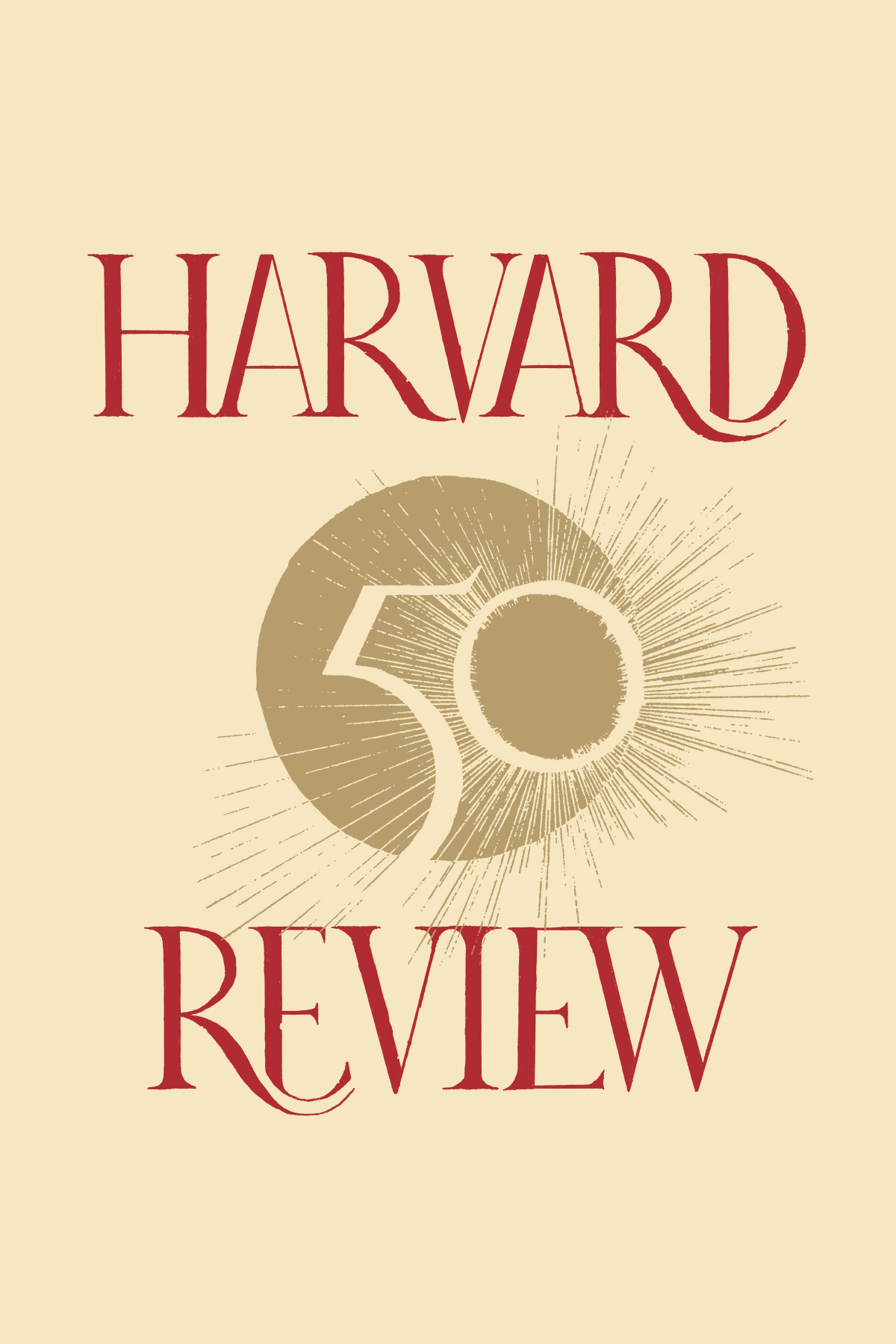HR 50 Editorial
by Christina Thompson
Well, here we are at the 50th issue of Harvard Review. It’s not that many decades—not 50 years—but so many marvelous pieces of writing, so many brilliant, sly, startling, delightful writers! I think we can say with confidence that Harvard Review is on the cusp of becoming what everyone thinks it already is: an old and eminent literary journal.
Before I became editor of Harvard Review, I was the editor of another old and eminent journal called Meanjin. We used to say that Meanjin was the oldest literary quarterly in Australia, though I’m not sure that was strictly speaking true. But the fact that it had been around a long time was important. You could read the literary history of Australia in Meanjin; it was like stratigraphy, each era adding a different colored stripe. Those of us who worked there knew that with each issue we were adding to the layers and that people in the future would be able to look back and catch something of our time in the shade and texture of our particular striation.
Not everyone sees literary journals in this way; most editors take more of a journalist’s than a historian’s approach, thinking more about their impact now than in the future. But I have always felt that what mattered in the end was a journal’s archival value. So, to me, it was especially fitting that Harvard Review should live within the library at Harvard—and not just any library but Houghton Library, that archive of archives.
The founder of Harvard Review, Stratis Haviaras, was himself a librarian, as well as a poet and novelist and the longtime curator of the Woodberry Poetry Room. When he launched the journal in 1992 it was in celebration of literature, of the book (as an artifact), and of the library, that “city of ideas.” Two things about that premier issue stand out: first, the astonishing (for a debut publication) list of contributors, which included not only the Nobel laureate Czeslaw Milosz, but Seamus Heaney (just three years shy of his own Nobel), and a youngish David Foster Wallace; and, second, the sheer number of book reviews, no fewer than sixty-seven, filling almost half the pages of the journal. The outgrowth of two earlier publications dedicated to reviews, Harvard Review was in its early years as much a journal of commentary as it was a journal of contemporary writing.
Some things have changed in the past quarter century and some have not. We are proud of the fact that Harvard Review is still published in print form and that we are still in the business of creating beautiful books. We are also keeping up with the commitment to commentary in the form of interviews, criticism, literary history, and reviews, though that part of our project has migrated to HR Online, the digital arm of our publishing program.
Many of Harvard Review’s earliest supporters are still members of our extended family—at least two contributors from the debut issue, Gail Mazur and Fred Marchant, appear in the 50th as well. And many more, including the indefatigable William Doreski, author of over seventy Harvard Review book reviews, the first of which appeared in issue 2, have maintained an ongoing relationship with the journal. But, of course, we have also made strenuous efforts to reach out to new writers; many of the fabulous poets, essayists, and fiction writers in this issue—including Michael Cunningham, Chris Abani, Rae Armantrout, Edward Hirsch, Paulette Jiles, Lily King, Claire Messud, and Neel Mukherjee—are appearing in these pages for the first time.
Finally, I want to extend a thank you to two previous editors who generously agreed to be part of this special issue: the talented short story writer Nam Le, who served as fiction editor from 2008 to 2012 and who is appearing in these pages as a poet; and Stratis himself, author and originator of this great project, whose vision and persistence made it possible, and who writes to us from Greece, where he now lives.
Published on October 17, 2024
First published in Harvard Review 50

